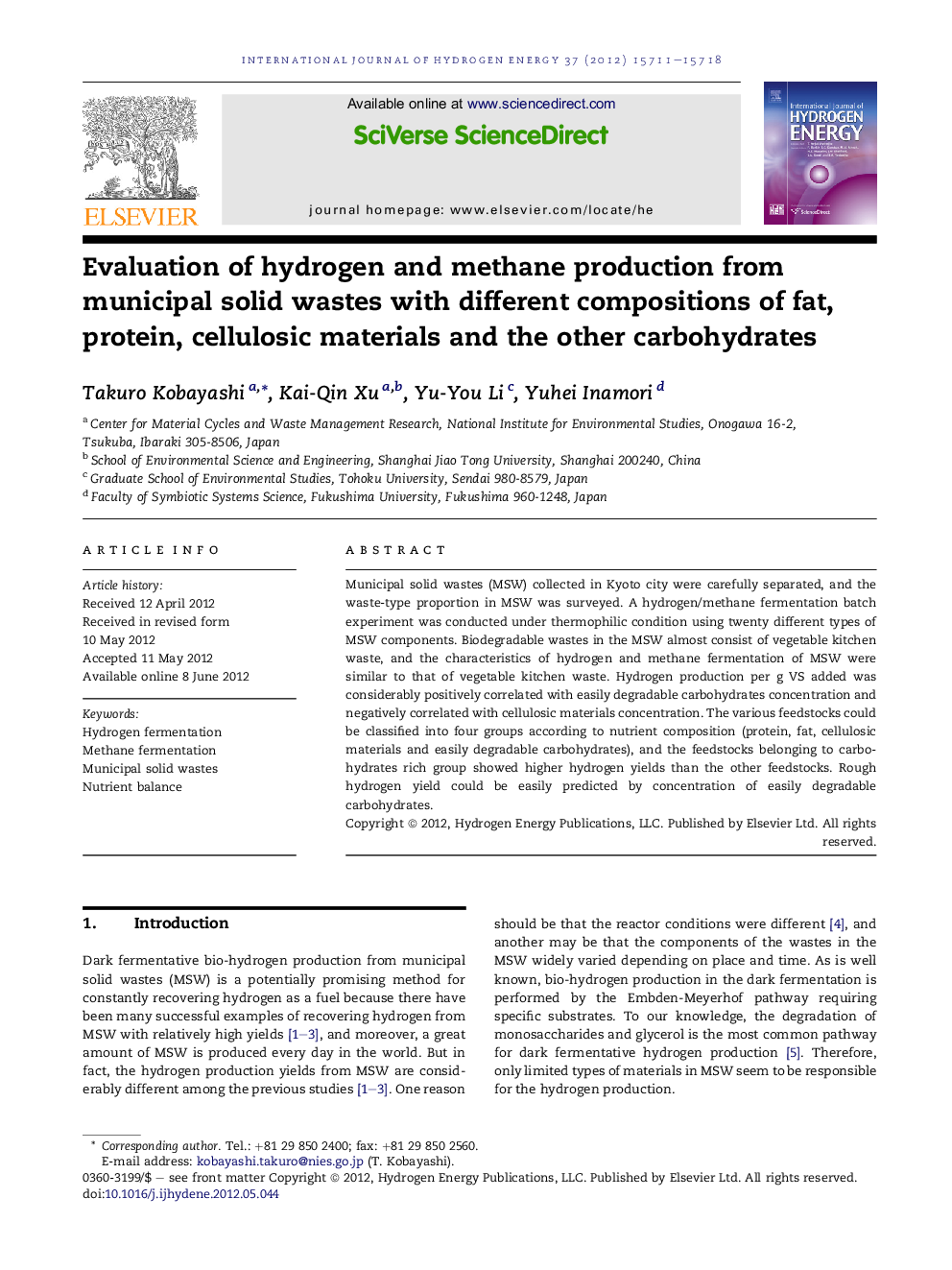| Article ID | Journal | Published Year | Pages | File Type |
|---|---|---|---|---|
| 1274585 | International Journal of Hydrogen Energy | 2012 | 8 Pages |
Municipal solid wastes (MSW) collected in Kyoto city were carefully separated, and the waste-type proportion in MSW was surveyed. A hydrogen/methane fermentation batch experiment was conducted under thermophilic condition using twenty different types of MSW components. Biodegradable wastes in the MSW almost consist of vegetable kitchen waste, and the characteristics of hydrogen and methane fermentation of MSW were similar to that of vegetable kitchen waste. Hydrogen production per g VS added was considerably positively correlated with easily degradable carbohydrates concentration and negatively correlated with cellulosic materials concentration. The various feedstocks could be classified into four groups according to nutrient composition (protein, fat, cellulosic materials and easily degradable carbohydrates), and the feedstocks belonging to carbohydrates rich group showed higher hydrogen yields than the other feedstocks. Rough hydrogen yield could be easily predicted by concentration of easily degradable carbohydrates.
► Municipal waste collected was carefully separated, and the composition was surveyed. ► Using each separated waste as feedstock, H2 and CH4 production were investigated. ► Feedstocks could be classified into four groups according to nutrient composition. ► Carbohydrate rich feedstocks showed the highest H2 yields and low CH4 yield. ► High H2 yield feedstock could be predicted considering carbohydrates concentration.
